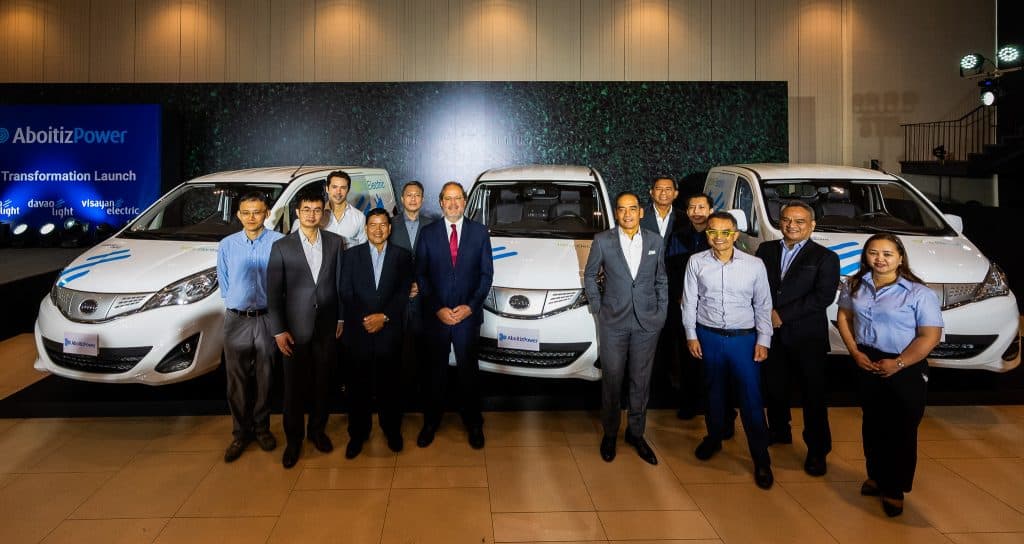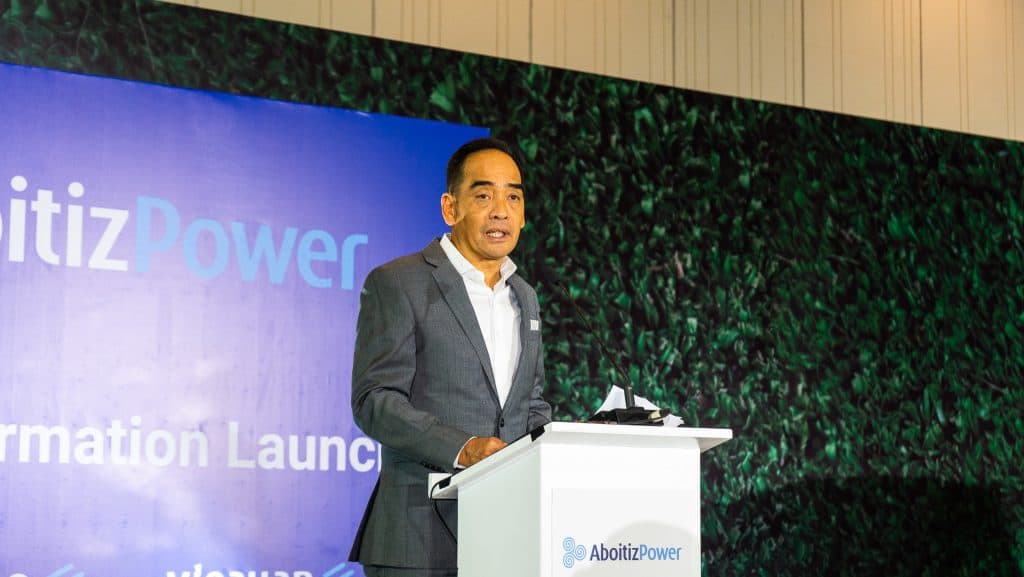Aboitiz Power Corporation or, simply, AboitizPower – which encompasses the Aboitiz Group’s interests in power generation, distribution, and retail electricity services – is going to systematically electrify its fleet, with a stated target of 40% by 2030 and complete electrification by 2040 of its four- and two-wheeled vehicles.
In a speech during the launch event for its so-called Fleet Transformation Program, AboitizPower President and CEO Manny Rubio said the effort “(reflects the firm’s) belief in the electrification and decarbonization of mobility as a way to transform (its) energy system.”
He shared that transportation “has always had a history of being the highest energy-consuming sector in the country,” accounting for 31.3% of total final energy consumption with over 11 million tons of oil as equivalent. Understandably, it generates a huge chunk of air pollution and greenhouse gas emissions. Rubio continued, “With an ever-growing demand for powered mobility, we recognize that deeper electrification… is a key enabler in achieving a cleaner and more sustainable world energy system. After all, a broad range of mobility applications can be powered with electricity from cleaner or zero-emission sources.”

The executive cited heartening findings that showed an “astounding leap” in electric vehicle (EV) sales in Southeast Asia last year – from 5,000 to 50,000 units. By the end 2023, global EV sales of 14 million units are expected. “We look forward to the day (EVs) can help clean up the mobility sector,” he underscored.
The initial AboitizPower EVs are BYD (Build Your Dreams) ETP3 commercial vehicles, which measure 4,450mm long, 1,1720mm wide, and 1,875mm tall. The model is said to boast a top speed of 130kph and maximum range in excess of 250 kilometers. The company took an initial delivery of four vehicles, which will be deployed to three key cities of AboitizPower distribution utilities: Visayan Electric, Davao Light, and Cotabato Light. Two units have been earmarked for Davao Light, with the other utilities getting one each.

“Electrifying our fleet will help us further reduce carbon emissions, lower operating costs, and contribute to cleaner air in the cities where we operate. This way, we are also helping empower the evolution of the cities we serve,” added AboitizPower Distribution Utilities COO Anton Perdices.
For his part, Aboitiz Power Vice President for Corporate Affairs Suiee Suarez said that this initiative is consistent with the bigger picture to “reinforce (the company’s) contribution to the country’s pursuit of cleaner and greener energy solutions, while also contributing to global sustainability goals.”
Over the next 10 years, the company vows to add 3,700 megawatts of capacity in renewable energy – such as solar, wind, and geothermal – in an effort to curb the “heavy reliance” on fossil fuels for transportation and power generation. “Electrifying our fleet will help us further reduce carbon emissions, lower operating costs, and contribute to cleaner air in the cities where we operate. This way, we are also helping empower the evolution of the cities we serve,” Perdices continued.
AboitizPower reports that, together with its partners, it “has the largest and most diversified renewable energy platform in the Philippines in terms of installed capacity under its operational control.” Some 1,000 megawatts of capacity – through wind and solar farms and geothermal facilities are still in the pipeline.
In an interview with this writer, Rubio said that thermal energy plants (coal-fired and LNG [liquefied natural gas-powered]) will realistically still be in the mix for at least the next 20 years. “This is until a cost-effective combination of a variable renewable energy and some form of energy storage becomes competitive. When we have that then it’s game over for thermal. But having said that, that’s why LNG was named as a transition fuel, well, because that’s still far down the horizon. But our focus would really be to shape the capacity growth into renewable energy, but also making sure that we have enough baseload capacity at a very competitive rate to make sure that we have energy for the country to power the economy,” he shared.

